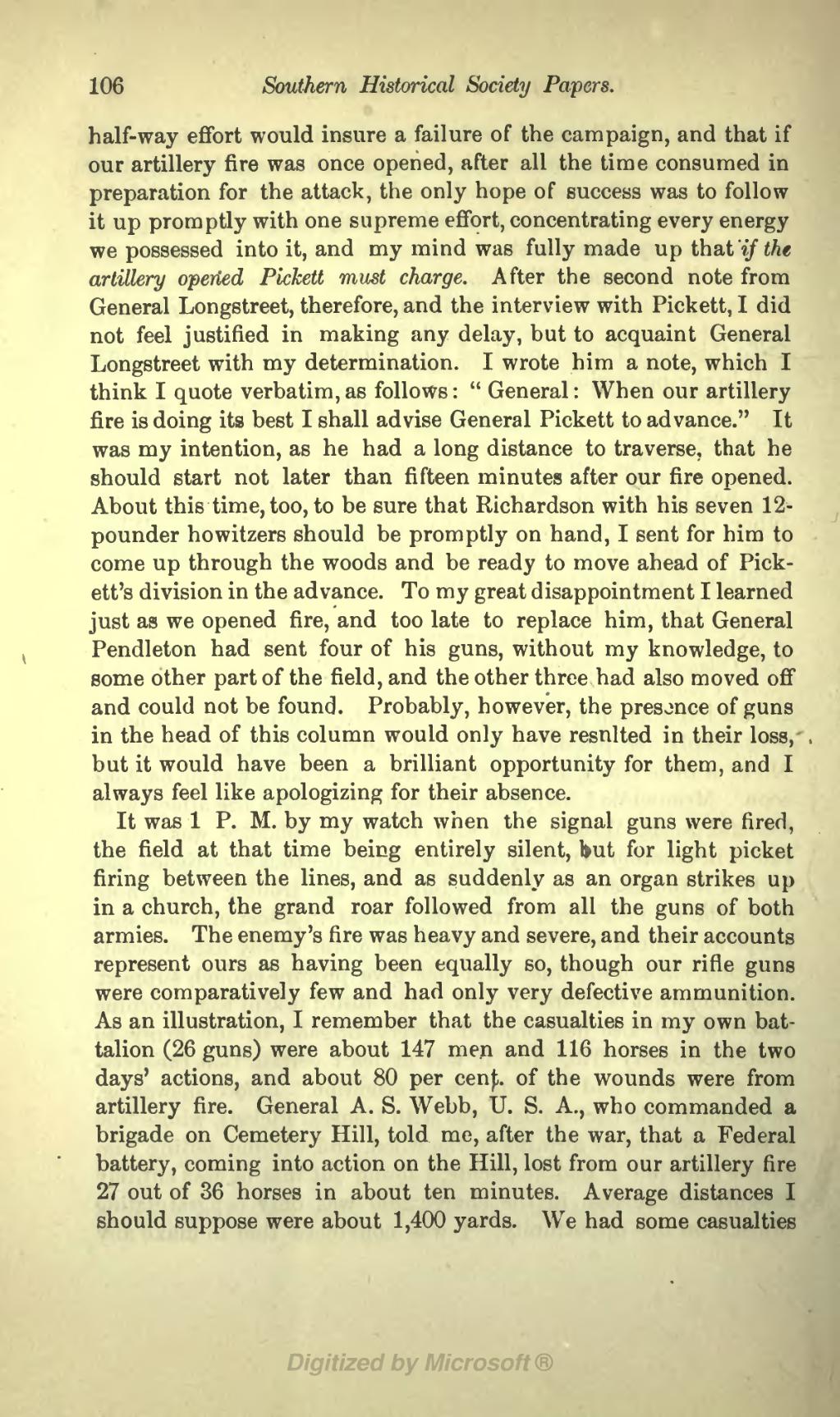half-way effort would insure a failure of the campaign, and that if our artillery fire was once opened, after all the time consumed in preparation for the attack, the only hope of success was to follow it up promptly with one supreme effort, concentrating every energy we possessed into it, and my mind was fully made up that if the artillery opened Pickett must charge. After the second note from General Longstreet, therefore, and the interview with Pickett, I did not feel justified in making any delay, but to acquaint General Longstreet with my determination. I wrote him a note, which I think I quote verbatim, as follows: "General: When our artillery fire is doing its best I shall advise General Pickett to advance." It was my intention, as he had a long distance to traverse, that he should start not later than fifteen minutes after our fire opened. About this time, too, to be sure that Richardson with his seven 12-pounder howitzers should be promptly on hand, I sent for him to come up through the woods and be ready to move ahead of Pickett's division in the advance. To my great disappointment I learned just as we opened fire, and too late to replace him, that General Pendleton had sent four of his guns, without my knowledge, to some other part of the field, and the other three had also moved off and could not be found. Probably, however, the presence of guns in the head of this column would only have resulted in their loss, but it would have been a brilliant opportunity for them, and I always feel like apologizing for their absence.
It was 1 P. M. by my watch when the signal guns were fired, the field at that time being entirely silent, but for light picket firing between the lines, and as suddenly as an organ strikes up in a church, the grand roar followed from all the guns of both armies. The enemy's fire was heavy and severe, and their accounts represent ours as having been equally so, though our rifle guns were comparatively few and had only very defective ammunition. As an illustration, I remember that the casualties in my own battalion (26 guns) were about 147 men and 116 horses in the two days' actions, and about 80 per cent. of the wounds were from artillery fire. General A. S. Webb, U. S. A., who commanded a brigade on Cemetery Hill, told me, after the war, that a Federal battery, coming into action on the Hill, lost from our artillery fire 27 out of 36 horses in about ten minutes. Average distances I should suppose were about 1,400 yards. We had some casualties
